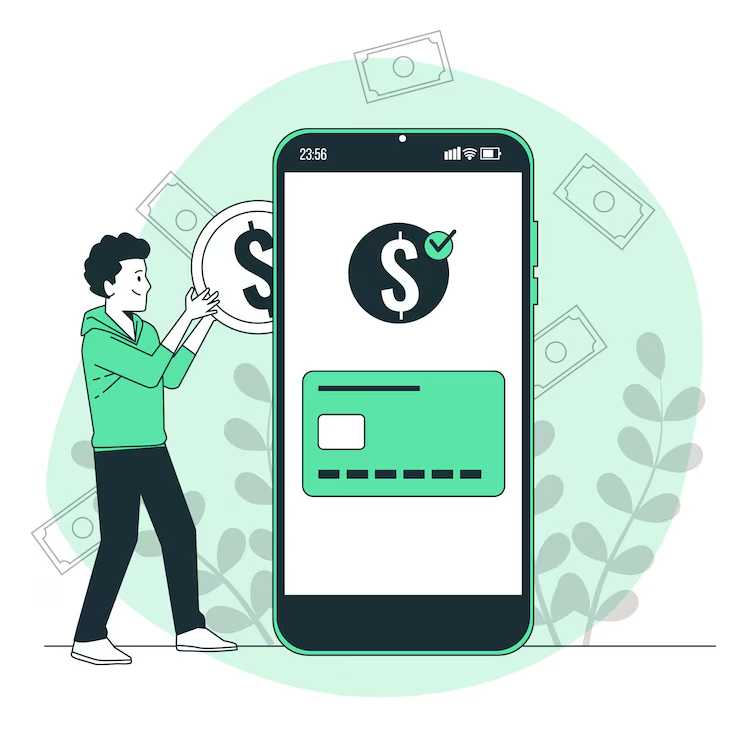12 Bill & Pay Hacks To Save Time

Managing bills and payments can be a daunting task, especially with the numerous due dates, payment methods, and potential late fees to keep track of. However, with the right strategies and tools, you can streamline your bill-paying process, save time, and even reduce the financial stress that often comes with it. Here are 12 bill and pay hacks designed to make your life easier:
Automate Your Payments: One of the most effective ways to save time is by automating your bill payments. Most service providers and banks offer autopay options that deduct the payment amount directly from your account on the due date. This ensures that you never miss a payment and saves you the time and effort of manually making payments each month.
Consolidate Your Bills: If possible, consolidating your bills can simplify your payment process. For example, if you have multiple credit cards or loans, consider consolidating them into one account with a single due date and payment. This can reduce the number of payments you need to keep track of, making it easier to manage your finances.
Implement the 50/30/20 Rule: Allocating your income wisely is crucial for effective bill management. The 50/30/20 rule suggests that 50% of your income should go towards necessary expenses like bills and groceries, 30% towards discretionary spending, and 20% towards saving and debt repayment. Following this rule can help ensure that you have enough funds for your bills without compromising your savings and leisure activities.
Use Bill Tracking Apps: There are numerous apps and tools available that can help you track your bills, due dates, and payments. These apps often send reminders and notifications to ensure you never miss a payment. Some popular options include Mint, You Need a Budget (YNAB), and Personal Capital.
Negotiate with Service Providers: Sometimes, you can save money and time by negotiating with your service providers. This is particularly effective for bills like cable, internet, and insurance. Calling your provider and asking about potential discounts or promotional offers can lead to savings without having to switch to a different plan or provider.
Consider Bi-Weekly Payments: For bills like mortgages or car loans, making bi-weekly payments instead of monthly payments can save you money in interest over the life of the loan. This method involves dividing your monthly payment in half and paying that amount every two weeks. Over a year, this results in 26 payments, which is equivalent to making 13 monthly payments, thus saving you money on interest.
Take Advantage of Grace Periods: Many bills come with a grace period—a short period after the due date during which you can still make payments without incurring late fees. Understanding the grace periods for your bills can help you manage your cash flow more effectively, especially during months when your finances are tight.
Use Cashback and Rewards: Using a cashback or rewards credit card for your bills can provide you with either cash rewards or other benefits like travel points. Just ensure that you pay off your credit card balance in full each month to avoid interest charges, which can negate the benefits of the rewards.
Prioritize High-Interest Debts: If you have multiple debts with different interest rates, prioritize paying off the ones with the highest interest rates first. This can save you a significant amount of money in interest payments over time. However, always ensure that you’re meeting the minimum payment requirements for all your debts to avoid late fees and negative impacts on your credit score.
Review and Adjust Regularly: Your financial situation and bills can change over time. Regularly reviewing your bills and payment strategies can help you identify areas for improvement. Whether it’s finding better insurance rates, renegotiating service contracts, or adjusting your payment schedules, staying proactive can lead to significant savings and reduced stress.
Use Paperless Billing and Payments: Going paperless with your bills can save time and reduce clutter. Most service providers offer digital billing options that allow you to receive and pay your bills online. This not only helps the environment but also makes it easier to keep track of your bills and payments digitally.
Educate Yourself on Financial Literacy: Lastly, investing time in learning about personal finance, budgeting, and money management can provide you with the skills and knowledge needed to make informed decisions about your bills and payments. Understanding concepts like compound interest, credit scores, and investment options can empower you to manage your finances more effectively and make strategic decisions that can save you time and money in the long run.
Incorporating these hacks into your bill-paying routine can significantly simplify your financial management, reduce stress, and save you valuable time. Remember, the key to effective bill management is finding a system that works for you and sticking to it, while also being open to adjustments as your financial situation evolves.
What are the benefits of automating bill payments?
+Automating your bill payments ensures that you never miss a payment, which can help avoid late fees and negative impacts on your credit score. It also saves time and reduces the stress associated with keeping track of multiple due dates.
How does the 50/30/20 rule help with bill management?
+The 50/30/20 rule helps by allocating 50% of your income towards necessary expenses like bills, ensuring that you have enough funds for your essential payments without compromising your ability to save or enjoy discretionary spending.
What are the advantages of using bill tracking apps?
+Bill tracking apps provide a centralized platform to manage all your bills, send reminders for upcoming payments, and offer tools for budgeting and financial analysis. They can help simplify your financial management and reduce the risk of missed payments.
By embracing these strategies and staying committed to your financial goals, you can not only save time in managing your bills but also cultivate a healthier relationship with your finances. Remember, effective bill management is a journey that involves continuous learning, adjustments, and optimizations to meet your evolving financial needs.



